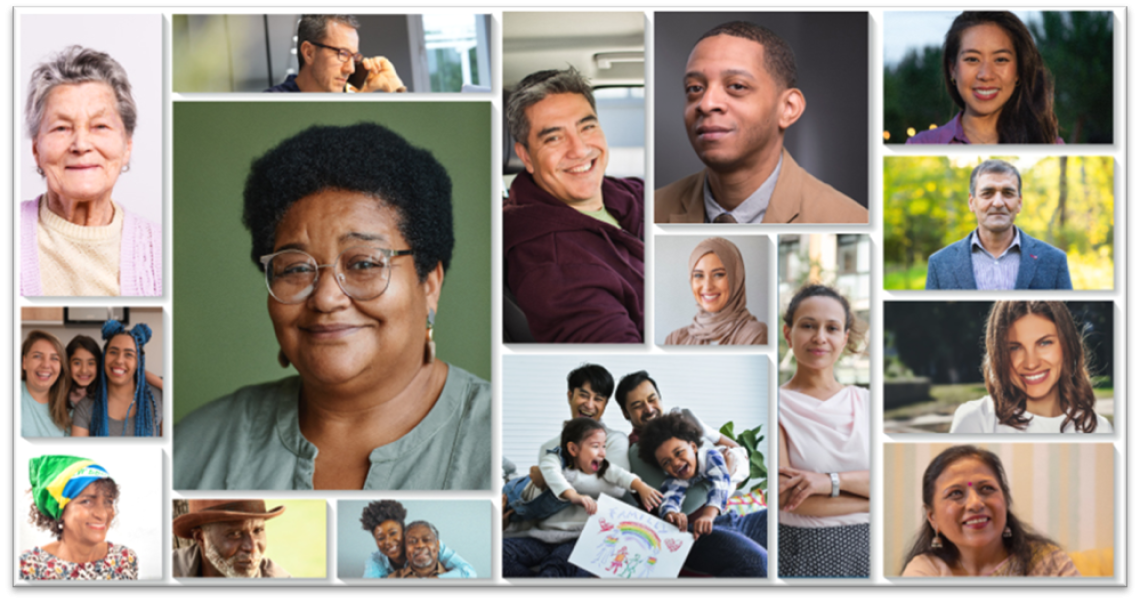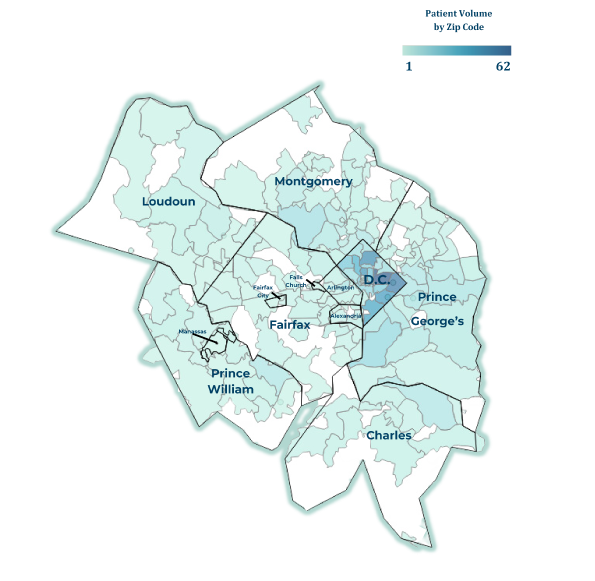
The GW Cancer Center is a trusted regional partner committed to inclusive and equitable cancer care, research, and education. Our Community Outreach and Engagement (COE) efforts have a positive and lasting impact on the health of our richly diverse communities.
Our current catchment area includes 12 counties/ municipalities across southern Maryland and northern Virginia, as well as all eight DC wards. COE’s goal is to support the GW Cancer Center’s impact on the catchment area through six strategic aims:
- Identify and monitor the cancer burden within our catchment area, especially for underserved populations.
- Develop sustainable partnerships between GW Cancer Center’s research programs and the diverse communities we serve so that research findings are put into practice.
- Partner with community-based organizations focused on cancer risk reduction, early detection, and survivorship to promote cancer health equity and increase quality of life throughout our region.
- Collaborate with DC Health and congressional leaders to influence local and federal policies to reduce the cancer burden across the GW Cancer Center’s catchment area.
- Increase participation in the GW Cancer Center’s clinical trials by overcoming barriers to care and ensuring a representative (race, ethnicity, sexual orientation, gender identity, and age) pool of research subjects.
- Invest in and build an infrastructure that supports community outreach and engagement.
The GW Cancer Center Catchment Area includes:
o Wards 1-8
o Montgomery o Prince George's o Charles o Fairfax o Loudoun o Prince William
o Alexandria o Fairfax o Arlington o Falls Church o Manassas o Manassas Park |

|
Most of the GW Cancer Center’s patients are residents of DC, Montgomery, and Prince George’s counties (Maryland). The most commonly diagnosed cancers are breast, prostate, lung, and head and neck.
The Community Outreach and Engagement Team
- Sherrie Flynt Wallington, PhD
Associate Director, Community Outreach Engagement and Equity - Shayla Scarlett, MBA, MPA, DipACLM
Assistant Director, Community Outreach Engagement and Equity - Claudia J. Campos Galván, MA, LGPC, TTS
Cancer Center Administrator/Community Health Worker Lead - Hannah Safron
Cancer Center Associate, Community Health
